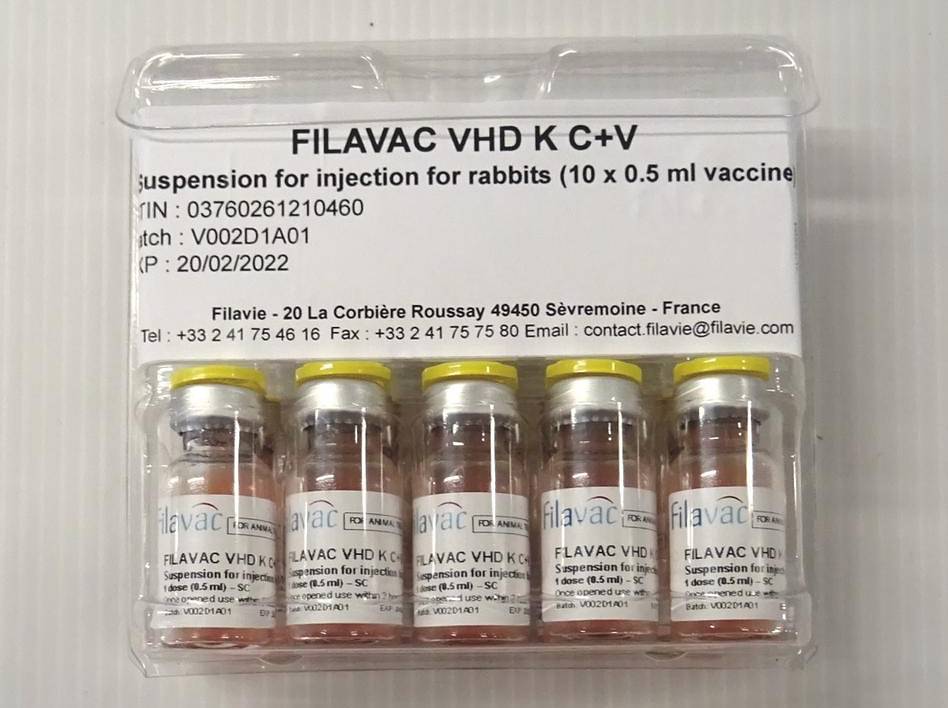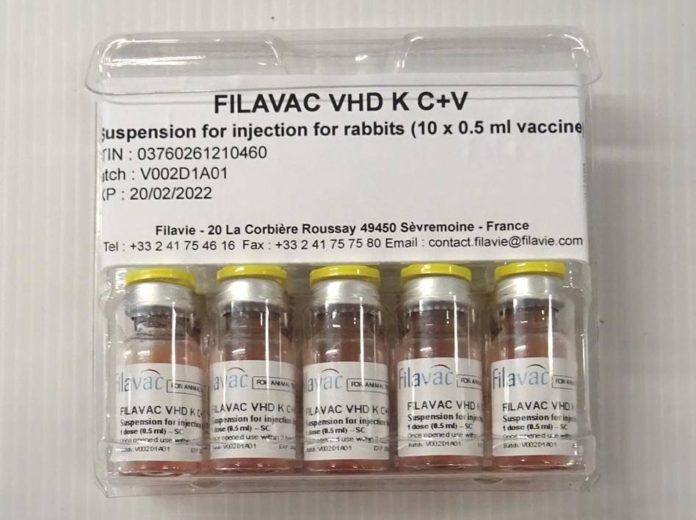SINGAPORE: A vaccine for the fatal and highly contagious rabbit haemorrhagic disease (RHD) is now available in Singapore.
Detected in Singapore last month, RHD has a fatality rate of between 90 and 100 per cent. However, it is only transmitted between rabbits and does not affect humans or other animal species.
Up to 11 rabbits were affected in the cluster identified in Singapore last month, at least eight of which have died. No new cases have been detected since Sep 17, said the National Parks Board (NParks) on Saturday (Oct 10) in response to CNA queries.
The vaccine, FILAVAC VHD K, was made available to veterinarians in Singapore on Friday, veterinary health company Ceva Santé Animale said.
Vaccination at select veterinary clinics cost between S$76 and S$85.
READ: Fatal disease affecting rabbits detected in Singapore: AVS
The vaccine takes effect within a week, and is “the only certain way to protect rabbits from this deadly disease” as there is currently no known treatment for RHD, according to Ceva Santé Animale, which owns vaccine manufacturer Filivie Laboratory.
“The vaccine will protect for at least one year with annual re-vaccination recommended,” it said.
However, the vaccine will not work if the rabbit is already infected with the RHD virus, said distributor DKSH Pet Supplies.

Rabbit haemorrhagic disease (RHD) vaccine FILAVAC VHD K. (Photo: DKSH Pet Supplies)
OWNERS ENCOURAGED TO GET PETS VACCINATED
The spread of the disease has been very limited in Singapore due to veterinarians’ vigilance and safety measures within the pet rabbit community, said NParks’ Animal & Veterinary Service (AVS).
The risk of RHD is low for rabbits that are housed indoors with minimal exposure outdoors and to rabbits from other households, said Dr Chang Siow Foong, AVS’ Group Director for Professional and Scientific Services.
“Notwithstanding this, vaccination of healthy rabbits can help to reduce the risk of infection. Pet owners are advised to consult their veterinarian on whether their rabbits can receive this vaccination,” he said.
READ: Vets, pet groomers take steps to prevent spread of fatal rabbit disease while awaiting vaccine
Two veterinary clinics that CNA spoke to said they are encouraging owners to get their rabbits vaccinated.
Owners should not avoid vaccinating their pets in hopes of a natural immunity developing, due to the extremely high fatality rate of RHD, said Dr Cathy Chan from The Animal Doctors. Herd immunity can only be achieved if the vast majority of rabbits are vaccinated, she added.
Dr Grace Heng from The Joyous Vet said if a rabbit owner assesses that their pet is vulnerable or at high risk of exposure, they should consider the vaccine.
The Animal Doctors allocates time slots daily to administer the vaccine, with some on standby for higher priority cases or those that require medical care or surgery.
“We will discuss the pros and cons of the vaccination in a rabbit with concurrent illness with the owner and will make a risk assessment together with the owner. We recommend the vaccination for all healthy rabbits,” said Dr Chan.
Dr Heng said pet owners should practise good hygiene and avoid bringing their rabbits to mingle with other rabbits, at least until the end of the year.
A pet rabbit in Singapore. (File photo: Vera Ang)
UNEASE ABOUT VACCINE PRODUCTION
However, some pet owners CNA spoke to have expressed unease about the vaccine, citing the need for a rabbit to be euthanised as part of the production process.
“I feel bad that a bunny has to die to reduce the fatality risk of my own bunnies in case they do get RHD,” said one rabbit owner who wanted to be known as Ms Teo. She is considering not having her two pet rabbits vaccinated.
Comments on a Facebook post by rabbit welfare group Bunny Wonderland with details on the vaccine referred to the process as “morally wrong”. “We are killing rabbits to save rabbits,” said a commenter.
The vaccine is produced by infecting a rabbit, and then euthanising it to collect the virus in its natural form before processing it – according to the Filivie Laboratory, this is the only way to preserve the antigenic structure of the virus, with all other methods failing so far.
In a Facebook response to a question in May about how the vaccine is made, a spokesperson from Filivie said that the vaccine’s manufacturing process has been reviewed and approved by an external ethics committee and by the French Ministry of Research, in accordance with the EU’s ethics rules in the use of animals.
The spokesperson declined to provide details about production numbers, but said that “one laboratory rabbit allows the production of several thousands of vaccine doses”.





